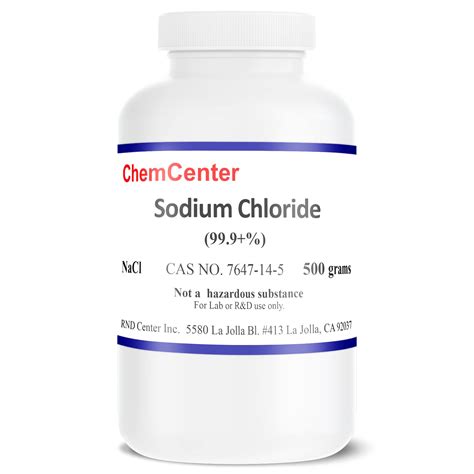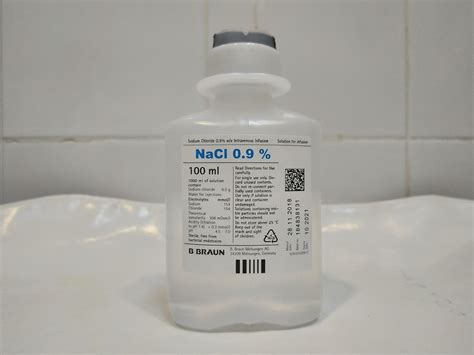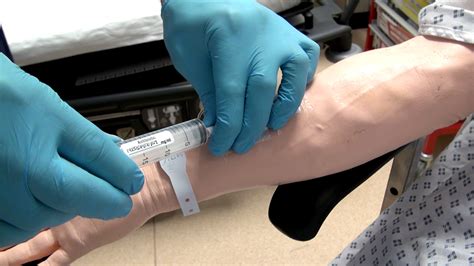Intro
Sodium chloride, commonly known as salt, is a crucial compound in various medical applications, particularly in the form of normal saline. Normal saline is a solution of sodium chloride in water, and its importance cannot be overstated in the field of medicine. The use of normal saline is widespread, ranging from intravenous hydration to wound cleansing, due to its isotonic nature, which means it has the same concentration of solutes as human blood. This characteristic makes it an ideal solution for medical applications, as it does not cause hemolysis (the rupture of red blood cells) when administered intravenously.
The composition of normal saline is carefully controlled to mimic the natural balance of fluids in the human body. It typically contains 0.9% sodium chloride (NaCl) in water, which translates to 9 grams of sodium chloride per liter of solution. This concentration is crucial for maintaining the osmotic balance between the solution and the cells, ensuring that the cells do not swell or shrink due to osmotic pressure differences. The isotonic nature of normal saline makes it safe for use in medical procedures, including as an intravenous fluid, for irrigation during surgeries, and for cleaning wounds.
Normal saline's role in medical treatment is multifaceted. It is used to replenish fluids, supply essential electrolytes, and maintain fluid balance in the body. In emergency situations, normal saline can be a lifesaver, helping to stabilize patients who are experiencing severe blood loss or dehydration. Its use extends beyond human medicine, as veterinarians also rely on normal saline for similar applications in animals. The versatility and safety profile of normal saline have made it a staple in healthcare settings around the world.
What is Sodium Chloride?

Sodium chloride, or common salt, is a chemical compound with the formula NaCl. It is composed of sodium (Na+) and chloride (Cl-) ions and is one of the most abundant compounds on Earth, found naturally in seawater and in mineral deposits. Sodium chloride is essential for human life, as it helps regulate the amount of water in the body and facilitates the transmission of nerve impulses. However, excessive consumption of sodium chloride can lead to health issues, such as high blood pressure, which increases the risk of heart disease and stroke.
Importance of Sodium Chloride in the Body
The human body relies on sodium chloride for various physiological functions. It helps maintain fluid balance, supports the health of muscles and nerves, and aids in the digestion of food. Sodium is also crucial for maintaining proper blood pressure and for the absorption of certain nutrients from food. Despite its importance, the body does not produce sodium chloride on its own, making dietary intake essential. Foods rich in sodium chloride include table salt, soy sauce, and processed foods, which can be high in sodium and should be consumed in moderation.How Normal Saline Works

Normal saline works by providing the body with the necessary fluids and electrolytes to function properly. When administered intravenously, it helps to expand the volume of fluid in the blood vessels, improving blood pressure and ensuring that organs receive the oxygen and nutrients they need. In cases of dehydration, normal saline can help replace lost fluids and electrolytes, restoring the body's fluid balance. Its use in wound care is beneficial for cleaning and irrigating wounds, reducing the risk of infection and promoting healing.
Benefits of Normal Saline
The benefits of normal saline are numerous: - **Isotonic Solution**: It has the same osmotic pressure as blood, making it safe for intravenous administration without causing damage to red blood cells. - **Fluid Replacement**: It is effective in replacing lost fluids and electrolytes, making it a critical component in the treatment of dehydration and shock. - **Wound Care**: Normal saline is used for wound irrigation, helping to remove bacteria and debris, thereby reducing the risk of infection. - **Medical Procedures**: It is used as an irrigant during surgical procedures, helping to keep the surgical site clean and clear of debris.Preparation and Administration of Normal Saline

Normal saline is prepared by dissolving sodium chloride in water. The solution must be sterile to prevent infection when used in medical applications. Administration methods vary depending on the intended use, ranging from intravenous infusion for hydration and electrolyte balance to topical application for wound care. In medical settings, healthcare professionals carefully monitor patients receiving normal saline intravenously to avoid overhydration, which can lead to complications such as pulmonary edema.
Considerations for Use
While normal saline is generally safe, there are considerations for its use: - **Allergic Reactions**: Although rare, some individuals may be allergic to sodium chloride or have sensitivities that could lead to an allergic reaction. - **Overhydration**: Administering too much normal saline can lead to overhydration, potentially causing serious complications. - **Electrolyte Imbalance**: Prolonged use of normal saline can lead to an imbalance of other essential electrolytes in the body, such as potassium, which requires careful monitoring.Common Uses of Normal Saline

Normal saline has a wide range of applications in medicine:
- Intravenous Hydration: To treat dehydration and maintain fluid balance.
- Wound Care: For cleaning and irrigating wounds to promote healing and prevent infection.
- Surgical Irrigation: To keep surgical sites clean and clear of debris.
- Eye Wash: As an isotonic solution, it can be used to rinse eyes in case of chemical exposure.
Alternatives to Normal Saline
While normal saline is widely used, there are alternatives for specific medical needs: - **Lactated Ringer's Solution**: This solution contains additional electrolytes like potassium, calcium, and lactate, making it suitable for patients who require these. - **Hypertonic Saline**: Used in cases of severe hyponatremia (low sodium levels in the blood) or to reduce intracranial pressure. - **Dextrose Solutions**: For patients who require glucose supplementation along with fluid replacement.FAQs About Sodium Chloride and Normal Saline

What is the primary use of normal saline in medical settings?
+Normal saline is primarily used for intravenous hydration, to treat dehydration, and maintain fluid balance in the body.
Can normal saline be used for wound care?
+Yes, normal saline is commonly used for wound irrigation to promote healing and prevent infection.
What are the potential risks of using normal saline?
+Potential risks include overhydration, which can lead to serious complications, and the possibility of allergic reactions or sensitivities to sodium chloride.
In conclusion, sodium chloride, in the form of normal saline, plays a vital role in medical care. Its applications range from hydration and electrolyte balance to wound care and surgical procedures. Understanding the importance of sodium chloride and the proper use of normal saline is crucial for healthcare professionals and individuals alike. As research continues to explore the benefits and potential drawbacks of normal saline, its place in the arsenal of medical treatments remains secure due to its effectiveness and safety profile. We invite readers to share their thoughts on the applications and limitations of normal saline, contributing to a broader discussion on its role in modern medicine.
